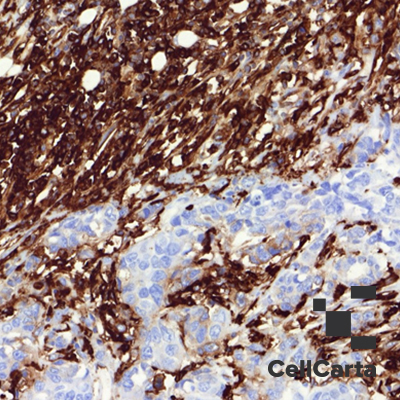Alternative Name(s): Human Leukocyte Antigen-DR

Test Description
The major histocompatibility complex (MHC) is located on chromosome 6 and contains more than 200 genes. There are separate clusters of MHC class I genes, MHC class II genes, and MHC class III genes. These genes are also known as Human Leukocyte Antigen (HLA) genes. There are 3 pairs of MHC class II genes, called HLA-DR, -DP, and -DQ which encode the alpha and beta chains of the various HLA class II molecules. MHC molecules are heterodimeric cell-surface glycoproteins that determine the humoral or cellular nature of immune responses. They display peptide antigens on cell surfaces for activation of T-cells and are required for antigen recognition by T-cells. CD4+ T-cells are activated by MHC class II molecules; CD8+ T-cells are activated by MHC class I molecules. The MHC class II molecules are expressed only on professional antigen-presenting cells (B-cells, macrophages, and dendritic cells), whereas MHC class I molecules are expressed on all nucleated cells. Besides antigen presentation, MHC genes also influence the development of particular T-cell repertoires during the selection process.